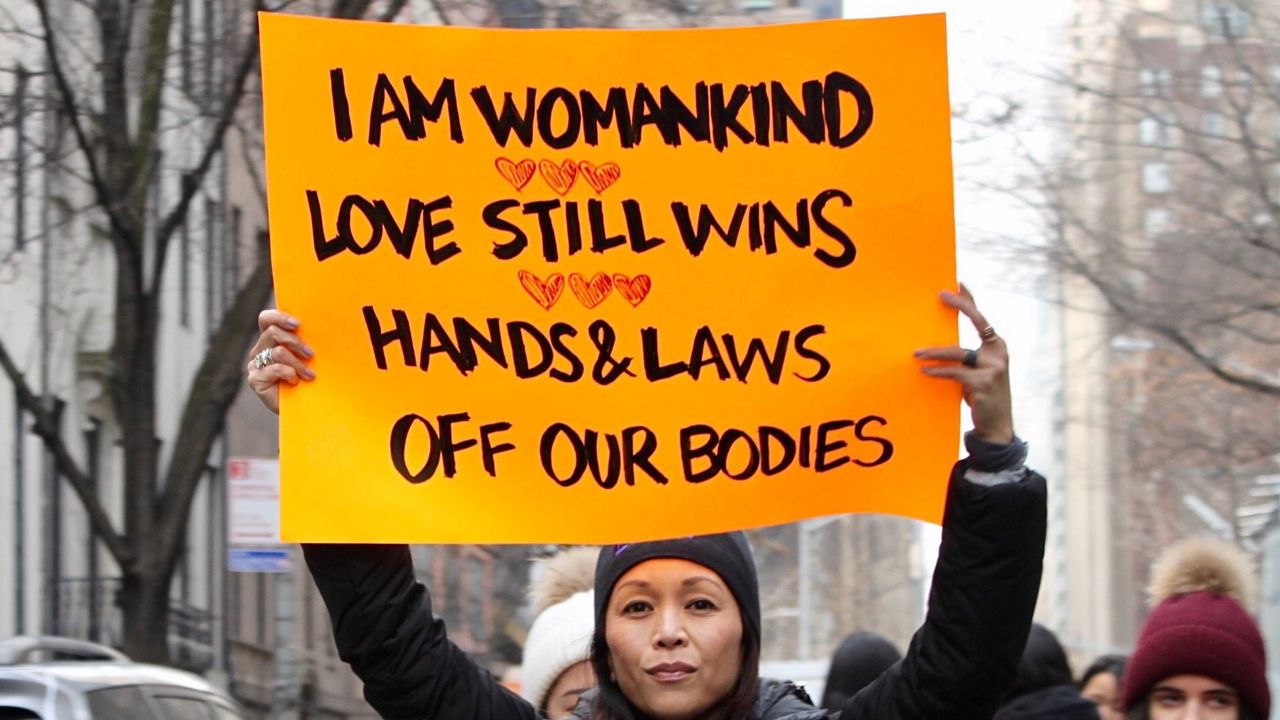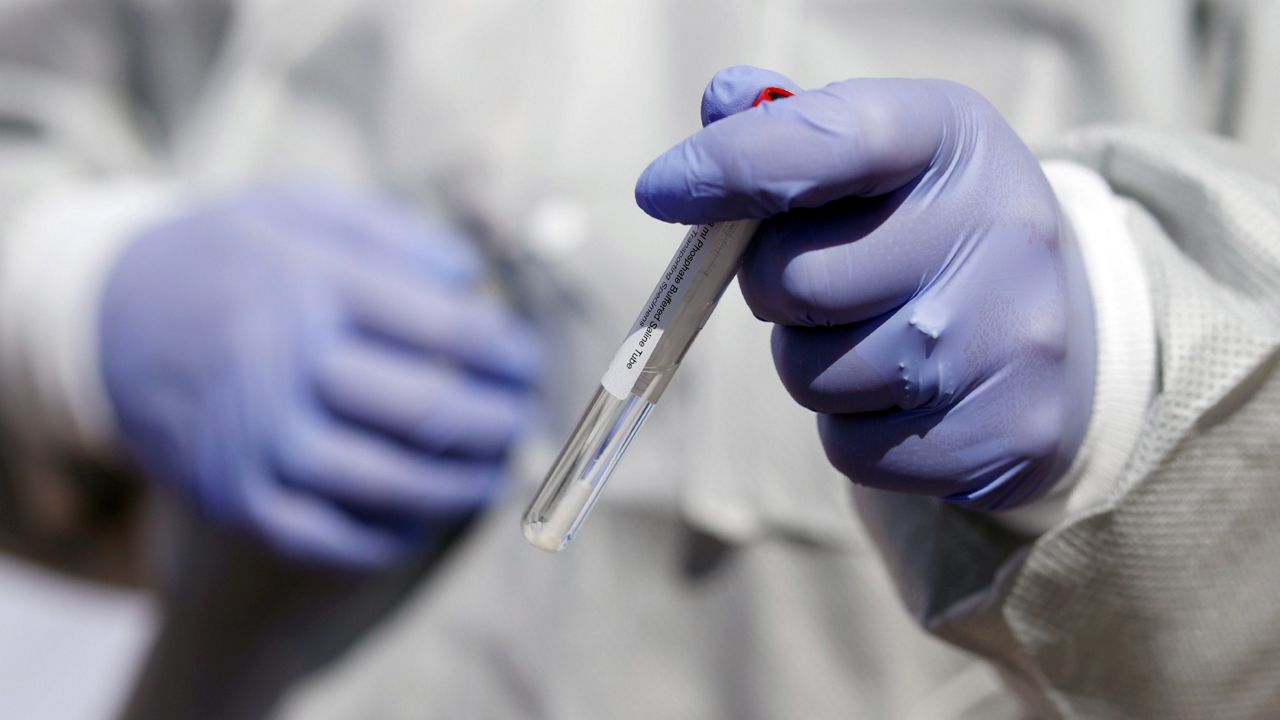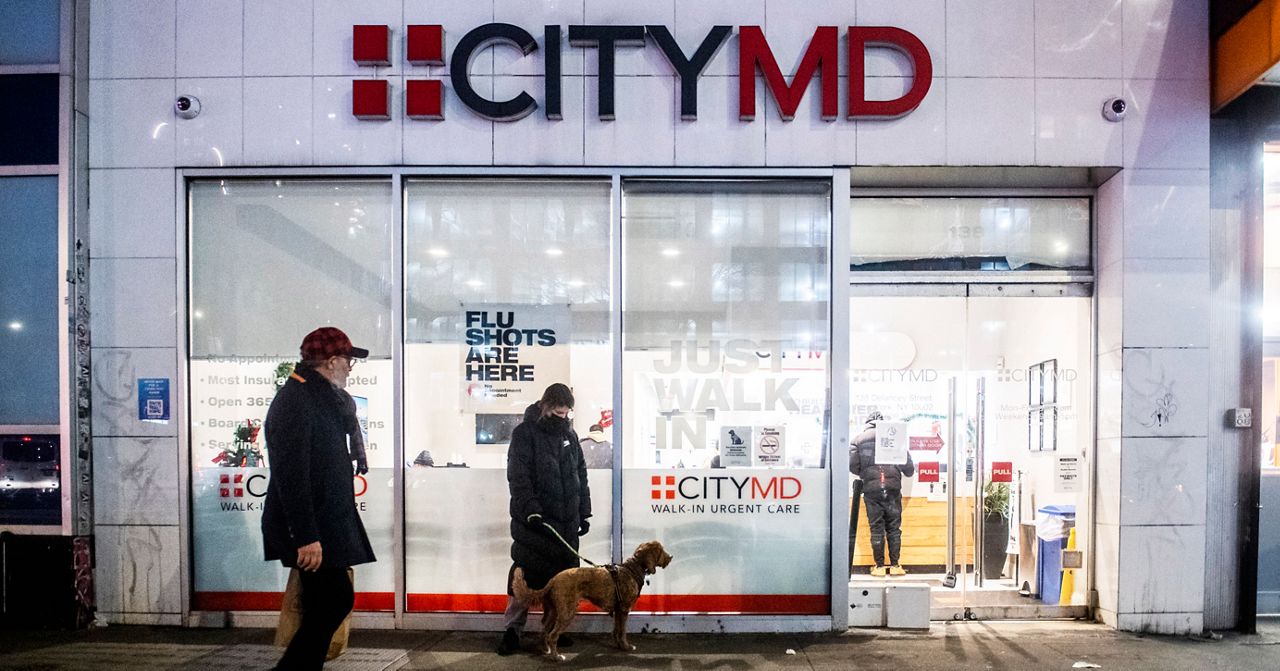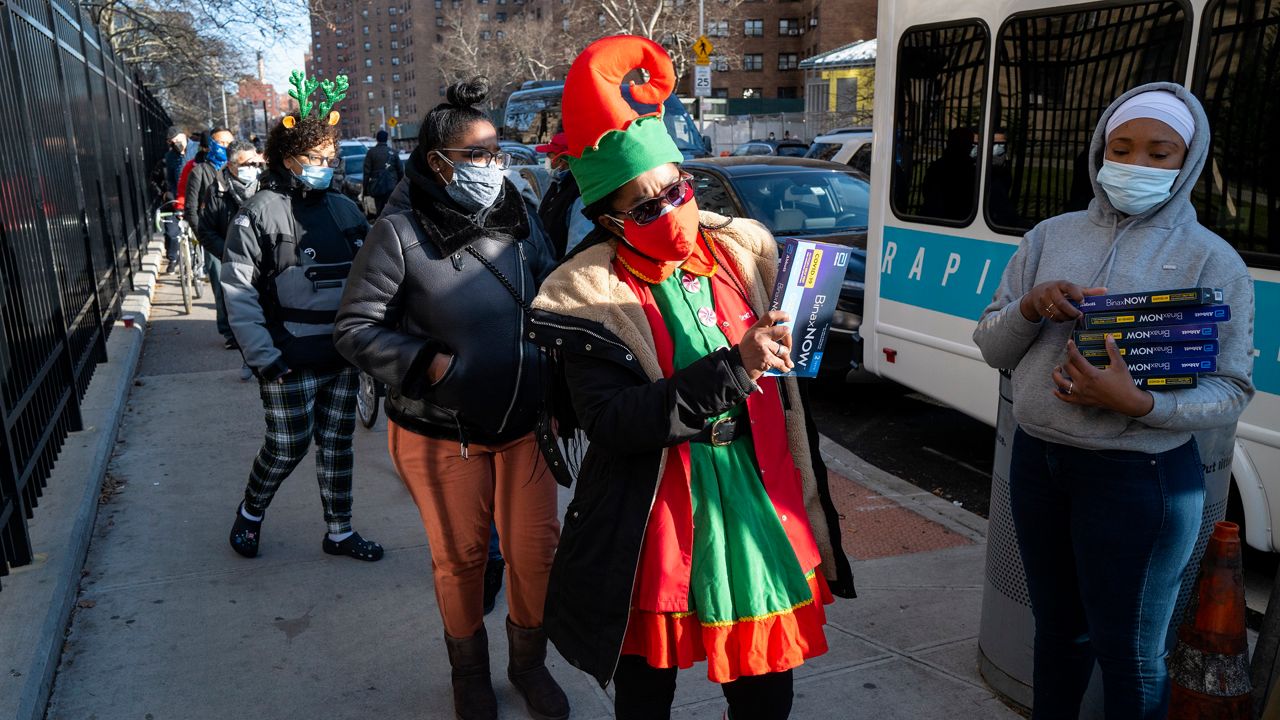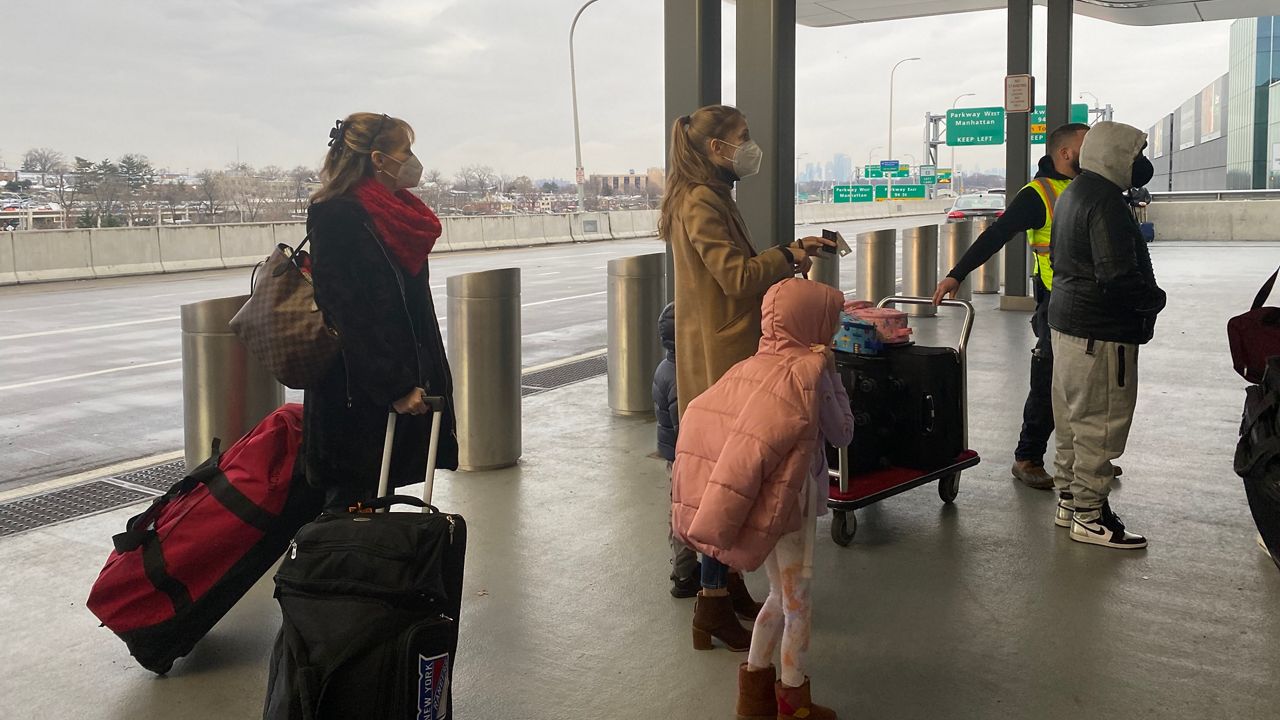Stay-at-home orders mean families are spending a lot more time together in close quarters. That togetherness could turn out to be a positive – unless you are a victim or survivor of domestic or gender-based violence. Niketa Sheth is the CEO of Womankind, which has worked with abuse survivors in the Asian community for 37 years and runs shelters in New York City. “I think the challenge we’re all seeing is that, as a society, we’re dealing with a whole extra level of anxiety,” she says. “But it’s not like in this moment domestic violence is just coming about. It’s already there.”
- LIVE UPDATES: Coronavirus in New York City
- LIVES LOST: Remembering Victims of the Coronavirus
- What to Do If You Test Positive for COVID-19
- CDC Coronavirus Page
- WHO Coronavirus Page
You would think that, as the days of social isolation turn into weeks and months, calls to hotlines would soar. That’s not what many advocacy groups are seeing. And that is chilling. Sakhi, a New York-based group that provides resources to South Asian women who have experienced violence, reported their hotline calls have dropped 76% since Coronavirus measures began to keep us housebound. Some groups say the number of survivors coming into their shelters has dipped. And some say survivors actually have left shelters and returned home to their abusers. Womankind is also seeing a worrying trend. “We have seen a decrease in new clients coming in the door,” Sheth said. “From the first to the second week we saw more calls, now we’re seeing a drop in our 24-hour helpline, and in any new point of entry into our shelters.”
Manhattan City Councilwoman Helen Rosenthal, an outspoken advocate for women, represents the Upper West Side and chairs the Committee on Women and Gender Equity. She agrees, seeing hotline numbers decrease at a time like this is disturbing. “Three weeks into a quarantine and all signs point to survivors not seeking help,” she said. “This is worrisome. I hope the administration is coming up with an aggressive messaging plan to address this issue.”
Advocates cite several reasons for a decline in calls to hotlines. It could be that survivors are afraid of catching or exposing their children to Coronavirus in what can be a crowded environment. The other, more frightening, reason may be the inability to escape their abusers, now there, in the home, looking over their shoulders, 24-hours a day. “The abuser is already asserting their control over the victim,” says Sheth. “This will exacerbate it.”
Yasmeen Hamza is Womankind’s Director of Community Programs. She adds, “being in an isolated situation with a partner makes it even more difficult. Prior to this, people who were harming others used the resources at hand as a form of control.” She says working with immigrant communities exposes another layer of abuse. “We see them use immigration status to further control and isolate their partners. It’s really difficult to make that decision to leave, and now you’re adding a pandemic. Will they have the resources to survive? Am I going to get Coronavirus if I leave? If I don’t speak English, will I be able to support myself?”
NYPD Commissioner Dermot Shea says the department has not seen an uptick in calls to its domestic violence hotline. What is increasing is the number of online visitors to websites offering advice to those in abusive environments. Cecile Noel, Commissioner of The Mayor’s Office to End Domestic and Gender-Based Violence, says she shares the concerns that victims and survivors may be unable to seek help. “Every day we are pushing our message to the public that city resources are still available and that we are still here to help survivors,” she said. “Survivors need us now more than ever in these extraordinary times, and our top priority remains to ensure continuity of services and unwavering support.”
Noel added that ENDGBV is continuously updating its website and using social media to let survivors know that help is out there, even in the face of the pandemic. But advocates worry that, even if the message is getting out, those who need it may not be in a position to respond. Sheth says Womankind is lucky because existing clients continue to reach out. “But how do you reach those new clients,” she asks? “There has been concern all across New York City on this.”
Then there are the related questions of safety and staffing. Shelters are often small and cramped. And, just like everywhere else in the city, advocacy groups are trying to keep employees safe, with many now working from home, an advantage not available to those who man the shelter sites. Womankind says they have planned for this. “We’ve tried to be a little more proactive in figuring out how to utilize staff to support both of our houses,” says Hamza, “and our staff is taking extra precautions and practicing distancing. I’m amazed at the staff, at how resilient and how hard they’re working.” Adds Sheth, “we are essential workers, but our staff aren’t immune to this virus. We want to support our staff and have enough who are trained to be in our shelters in case someone becomes ill. They’re also being extra vigilant in their cleaning protocols.
Councilwoman Rosenthal agrees that those running the city shelters and private shelters have to create an alternative to the traditional system, asking, “if the shelter has a congregate kitchen, have they arranged ways for survivors to get catered meals so they don’t have to leave the shelter? Do they have the technology and security systems to work from home where possible? Do frontline workers at domestic violence shelters have the protections they need, like PPEs?” She also suggests possible incentive pay for those workers who show up at the shelters, every day.
The bottom line, according to Noel, is that victims and survivors of domestic and gender-based violence must know there will be someone there to help, whenever they need it. “COVID-19 puts into sharp focus the vulnerabilities that many people in our city face every day, especially gender-based violence survivors,” she said. “The City is here for survivors during this crisis and beyond and will continue to work to identify best practices and innovative approaches to enhance its services.”
Resources:
· ENDGBV Family Justice Centers Monday to Friday, 9 a.m. to 5 p.m. on the FJC phone lines (Brooklyn: 1-718-250-5113; Bronx: 1-718-508-1220; Manhattan: 1-212-602-2800; Queens: 1-718-575-4545; Staten Island: 1-718-697-4300.)
· Evenings and weekends, survivors can call NYC’s 24-hour Domestic Violence Hotline (1-800-621-4673), to access assistance with immediate safety planning, shelter assistance and community resources.
· Survivors with access to the internet can visit nyc.gov/NYCHOPE for additional resources and information.
· Survivors are additionally encouraged to call NYC Well (1-888-692-9355) for help with stress and anxiety, as well as to call 911 for emergencies.
Womankind:
Helpline
1.888.888.7702
Available 24/7 in 18+ Asian languages and dialects, plus Spanish
Text
English 1.929.207.5907
Chinese 1.929.207.5901
Texting available Monday-Friday 10 AM - 6 PM
Chat
Chat in English and Chinese. Available Monday - Friday 10 AM - 6 PM




